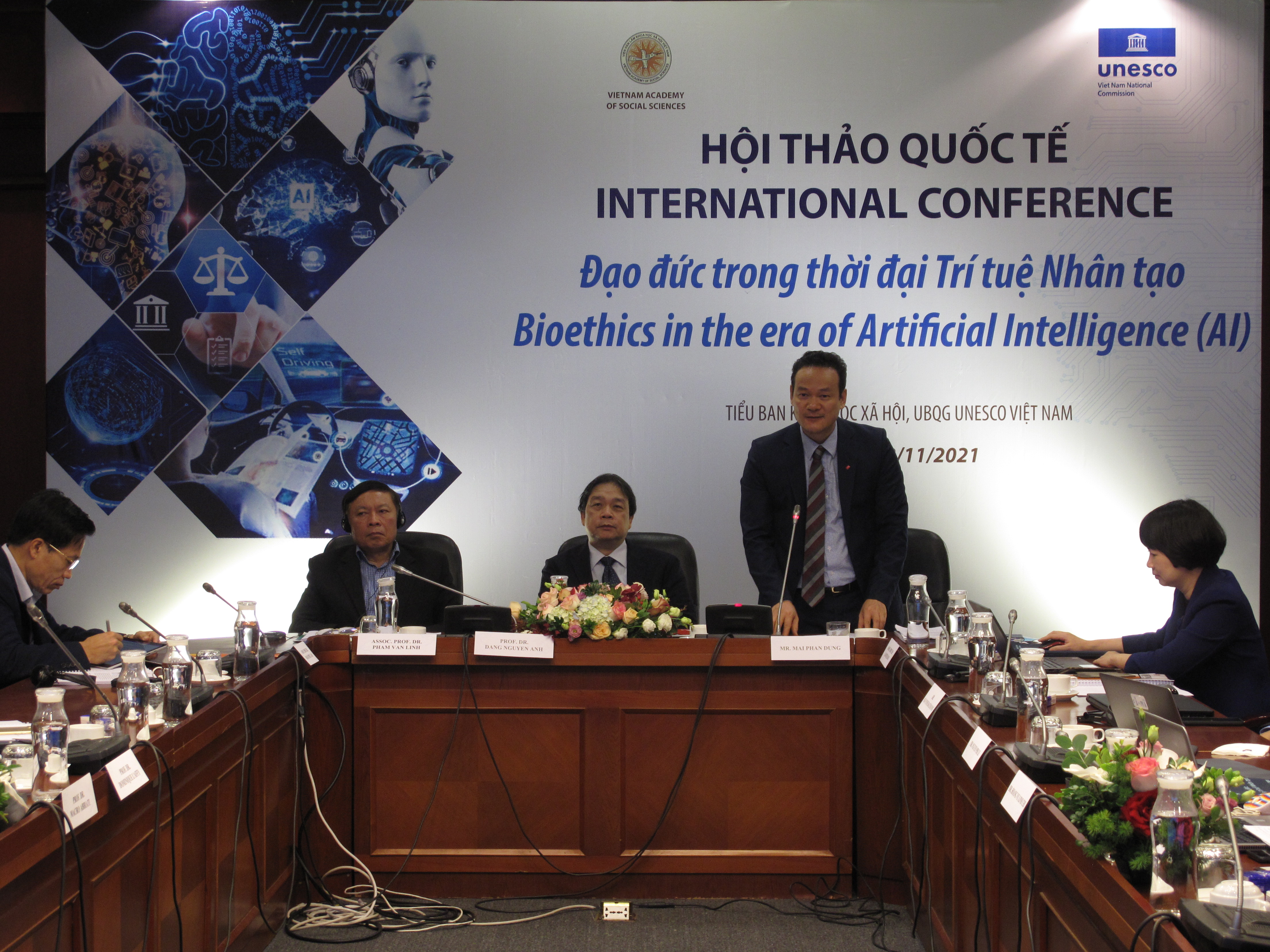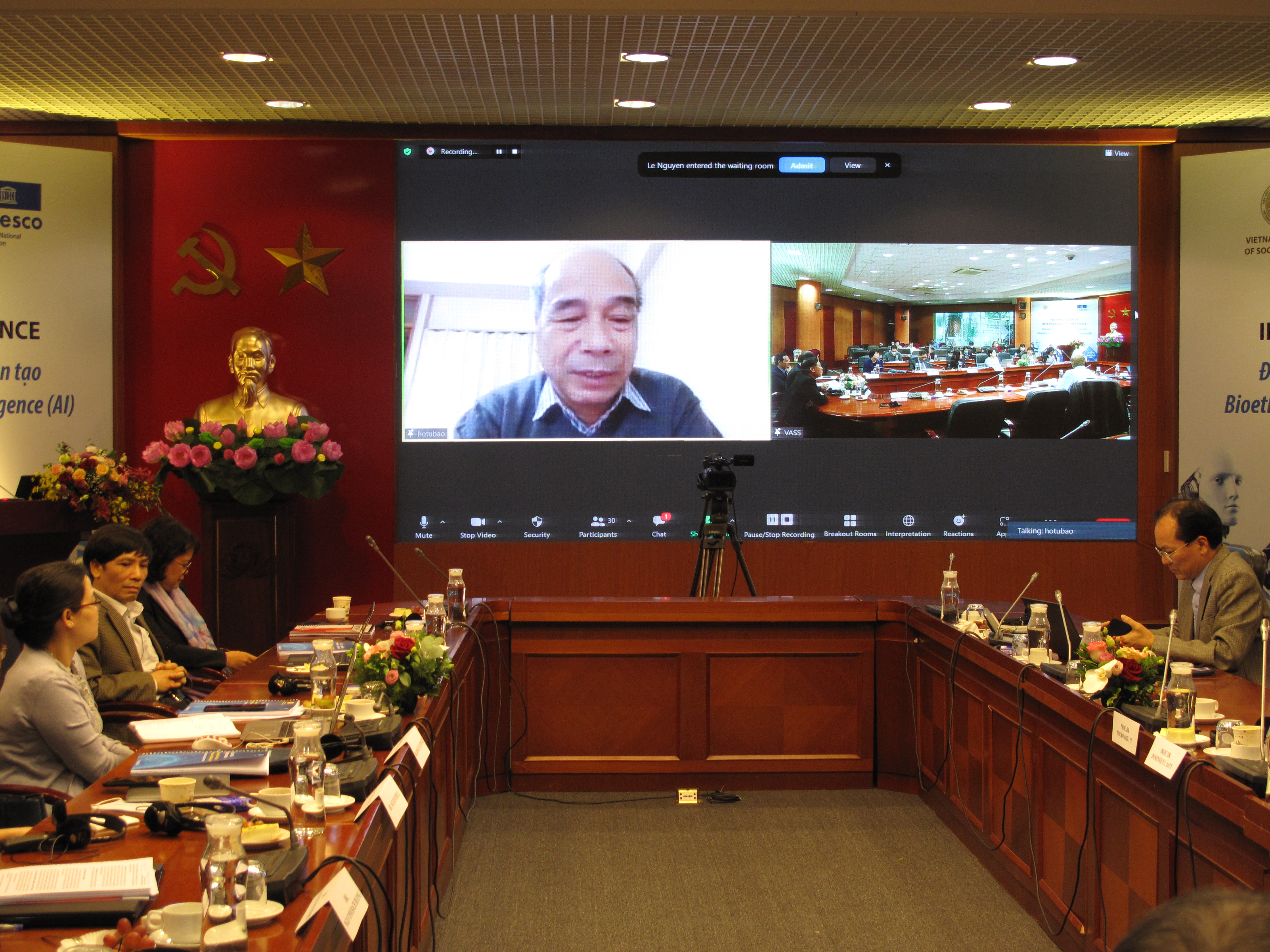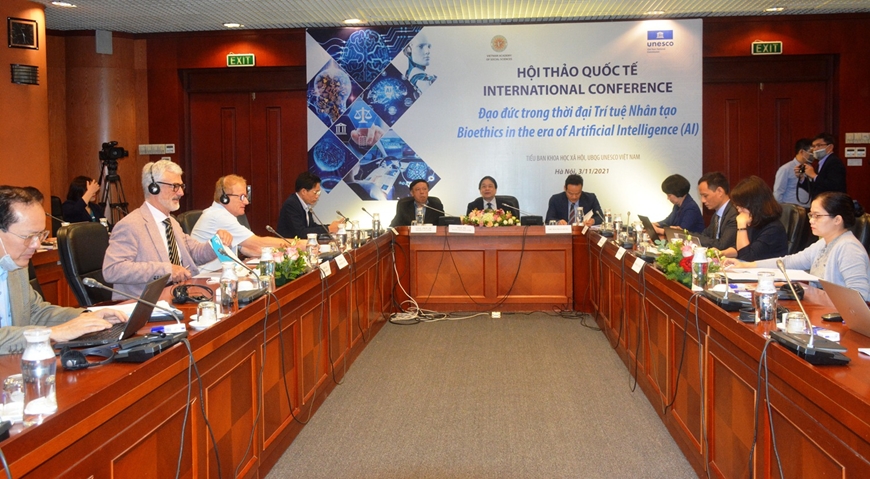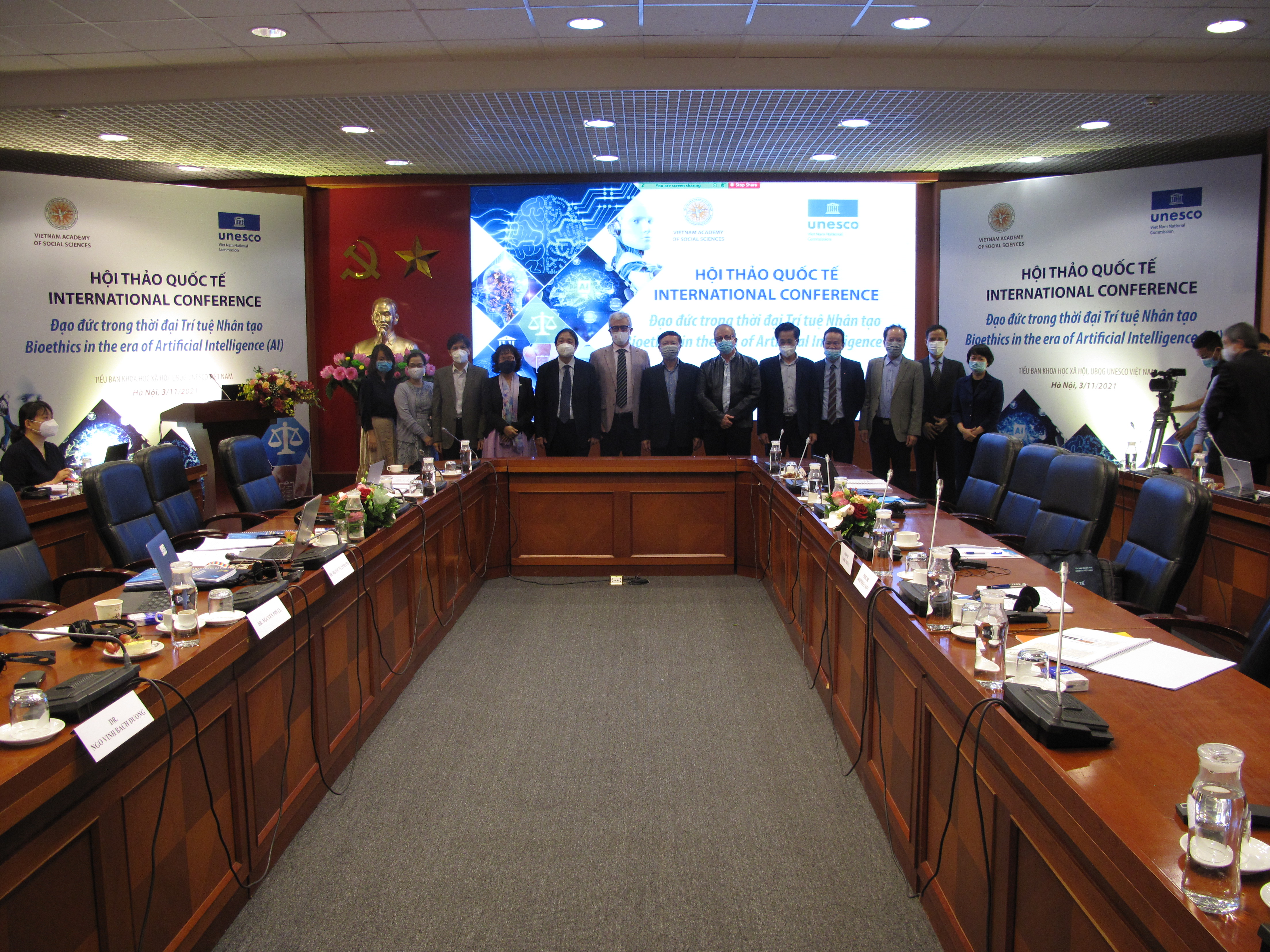Artificial intelligence (AI) is today considered one of the core technologies of the Fourth Industrial Revolution and has brought about great changes in society, especially in the economy and applied science. However, besides effectively taking advantage of the development achievements of AI and automation, countries around the world have been facing challenges brought by AI, especially from an ethical point of view humanities.
The explosive development of the Internet and Fourth Industrial Revolution has brought about inventions that completely change the way society and people operate on the basis of AI, super automation and hyper-connectivity. Currently, the world has produced robots that can think like humans with the nervous system as part of the brain, able to hear, see, move and use our language. AI also helps with speech and face recognition, with reasoning and self-correction capabilities.
It can be seen that AI is blurring the lines between physical, digital and biological elements. Its strong development takes place very quickly, day by day, hour by hour, bringing enormous benefits in all areas of social life, from economy, health, finance to banking to to science, education and daily life. AI technology is behind self-driving cars that no one could have imagined 10 years ago. Many countries are setting out ambitious plans to become global leaders in AI with major breakthroughs in the field.
Speaking at the opening of the Conference, Prof. Dr. Dang Nguyen Anh, Vice President of Vietnam Academy of Social Sciences, Vice Chairman of UNESCO Vietnam National Committee - Head of the Subcommittee on Social Sciences, warmly welcomed domestic and international delegates to the Workshop in face-to-face and online.
Professor Dang Nguyen Anh said that over the years, the Vietnam National Commission for UNESCO has worked closely with relevant ministries, departments and agencies, including the Vietnam Academy of Social Sciences and the UNESCO Sub-Committee on Social Sciences, with the aim of strengthening the advisory role in the implementation of the National Sustainable Development Goals. Through conferences and seminars, research results are conveyed to managers, policy makers, shared with the public, and provided policy advice to the Party and State. This is one of the important functions closely linked with the tasks that the Vietnam Academy of Social Sciences and the UNESCO Sub-Committee on Social Sciences have been performing.
GS. Dang Nguyen Anh affirmed, there are still many issues about AI that we do not fully understand and agree on: It is difficult to confirm or predict the social impact, as well as the impact on the ethical category in the application use AI? In fact, AI can lead to increased social inequality, creating a divided, fragmented labor market with excessive wages, exacerbating social division and stratification. What happens once machines get smarter and we can't control them? What if machines have an intelligence that surpasses humans when superintelligence is possible? AI does not know how to accept the good, eliminate the bad when making decisions to help people? That is why it must be designed and applied with ethical principles in mind. Here, the answer is people with outstanding ability and accountability. Because man creates machines and is also the subject of rules that machines must follow...
Prof. Dr. Dang Nguyen Anh emphasized: With the title "Ethics in the age of Artificial Intelligence", today's seminar aims to form a theoretical basis, share references and international experiences on development. AI and consider the ethical and humanistic dimension. This is a very new issue, so it needs to continue to be thoroughly researched and evaluated scientifically before drawing conclusions.
Prof. Dr. Dang Nguyen Anh suggested that, through the presentations of experts, along with discussions and debates, our workshop will identify the content and nature of concepts and consider them. AI from an ethical perspective, while suggesting and proposing appropriate policy and legal orientations to ensure ethical standards in AI application in Vietnam.
|
|
 |
In the welcome speech, Mr. Mai Phan Dung, Secretary General of the National Committee of UNESCO Vietnam said: We are living in a world where the rise of technology is an inevitable trend. AI will be a technology trend marking the turning point of the whole world. AI is recognized as having made a great contribution to the development and prosperity of countries. AI is a very important production tool, changing production methods, which can lead to changes in production relations and the development level of society. AI in the future can directly become a productive force, replacing and liberating human labor. However, AI also poses many major problems and challenges, such as: deepening the disparity in technology between countries; deepening inequalities around the world, between countries and within countries; threaten cultural diversity; threats to national security, negative impacts on the environment and ecosystems, negative impacts of AI on human rights and dignity, the relationship between humans and machines; infringing upon individual liberties and other fundamental rights...
Mai Phan Dung said that, with the mission of "laboratory of ideas", UNESCO soon realized the need to develop international ethical standards in the AI era, helping countries build policies to take advantage of AI but limit the negative aspects. Therefore, UNESCO is developing a Draft Recommendation on Ethics in AI, identifying and emphasizing the positives, negatives, fundamentals of AI, guidelines for the development and use of AI responsible for AI technologies, principles of governance, collaboration, adaptation, public and private sector obligations, etc.

The conference received many presentations from domestic and foreign scientists. The workshop was organized into 02 sessions with 06 reports presented on the following topics:
The first session "Artificial Intelligence and Ethical Aspects", with the following presentations: (1) Application of AI in healthcare and ethical issues, by Dr. Nguyen Phi Le, Lecturer in Information Technology, Faculty of Information and Communication Technology, Hanoi University of Science and Technology; (2) Ethical issues of self-driving vehicles, by Assoc. Dr. Salvatore Babones, Faculty of Arts and Social Sciences, University of Sydney, Australia; (3) Ethical issues of artificial intelligence and social impacts, by Dr. Hoang Vu Linh Chi, Institute of Sociology, Vietnam Academy of Social Sciences.
The second session, “Building an Ethical Code for Artificial Intelligence”, featured the following presentations: (4) Pursuing legitimacy: How AI startups navigate the macro institutional environment scale and industry?, by Assoc. Dr. Thai Thi Thanh Mai, Faculty of Entrepreneurship and Innovation, HEC Montreal, Canada; (5) AI ethics and policy implications for Vietnam, by Assoc. Dr. Cao Thu Hang, Communist Magazine; (6) Building a legal framework for artificial intelligence development in Vietnam, by Dr. Ngo Vinh Bach Duong, Institute of State and Law, Vietnam Academy of Social Sciences.
Delegates gave speeches and presented reports at the Conference
The workshop received many comments from delegates, experts and scientists, focusing on discussing and clarifying the ethical challenges of AI for social life; At the same time, it provides international experiences and implications for changes in institutions, policies, and ethics related to AI. The conference is also an opportunity to look back at the great changes in society brought about by the 4th Industrial Revolution and the development of AI, better identify challenges, learn from international experiences, and propose solutions to both improve technical skills and prepare for higher stages of AI development in Vietnam.

Speaking at the closing of the Conference, Prof. Dr. Dang Nguyen Anh once again thanked the large presence of delegates and scientists, especially the National Committee of UNESCO Vietnam for funding the Workshop, contributing to the success of the conference. Seminor. Prof. Dr. Dang Nguyen Anh said the content of the presentations focused on topics such as: Applications of AI in healthcare; solve problems related to environment and society in Vietnam; AI ethics and social implications; building a legal framework, suggesting policies for AI development in Vietnam... The discussions at the Workshop were very open and scientific, and there were many facts, ideas and opinions discussed at the Association. The discussions were very useful, posing new issues, issues that need to be further studied and discussed. Prof. Dr. Dang Nguyen Anh hopes that in the coming time, Vietnam needs to further strengthen cooperation with UNESCO in this field, promote awareness and education on AI, develop appropriate policies, and handle challenges posed by AI. brings, especially from an ethical and humanistic perspective...

Reporter.







